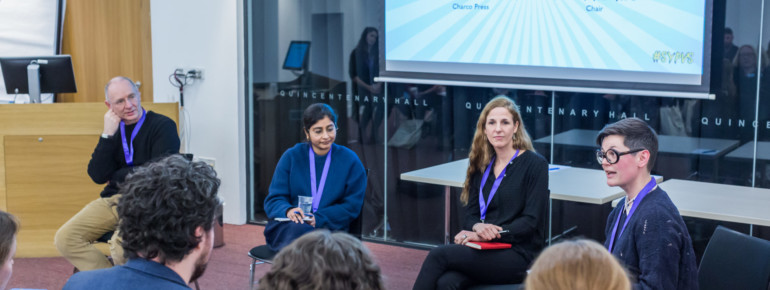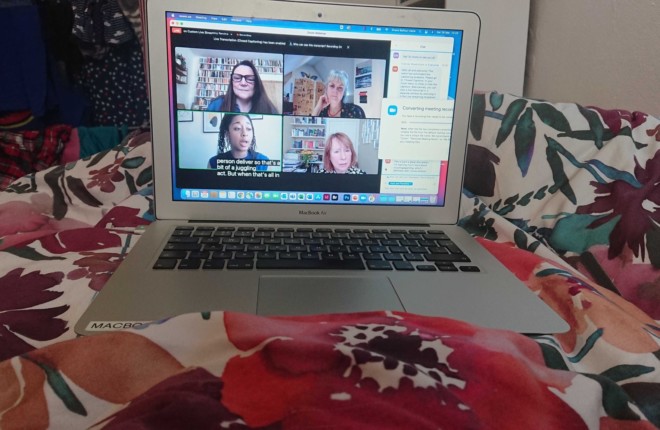
Spring Conference Reading Between the Lines
Posted on April 27, 2018 in Scotland

Panel: Saba Ahmed from And Other Stories and Tilted Axis, Dr Carolina Orloff from Charco Press, and James Robertson from Itchy Coo. They are all well-known for working with stories in translation.
Chair: Peggy Hughes.
The panel focused on translated fiction, and explored translated literature, why works in translation matter, and why the translation market should be expanded.
At Tilted Axis translators act as scouts, finding works that they consider worthy of being translation. At And Other Stories, literature is translated all over the world.
Charco Press was founded in 2016, and has published 5 books so far. Their focus is contemporary Latin American literature. They work with up-and-coming translators, and provide a space for new writers and translators.
The steps to a Charco Press book are as follows:
- Acquire rights to a book/translator proposes a book
- Work with a translator
- Check the translation
- Discuss issues with author
- Proofread
- Copy-edit
- Design
There are challenges to translated fiction. For example, the understandability and how other languages are embraced or not embraced at a young age. This mentality already starts at primary school age.
The question was posed whether translated fiction should be reframed as just books. Saba mentioned that books can be used to understand different cultures, and the difficulty of not understanding should not be seen as a problem. James said that translated fiction often gets othered, and that there is a very specific translation route, as not many books are originally written in Scots.
Another question that was asked was why there is more translation fiction now. Carolina states that people are tired of how books look, and they are looking for other things. Tokenizing these books though is detrimental. James states that Harry Potter and The Gruffalo would not have worked without the otherness. Saba would love it if mainstream publishers stopped glossing everything and states that translated fiction has a disruptiveness.
Carolina also mentioned that support from mainstream publishers is good, and it would increase recognition and visibility.
James and Carolina described how Brexit impacted their part of publishing. James mentioned that due to Brexit the pound has gone down, which meant that people were buying more books from the UK and not the other way round. Carolina states that there has been no impact on their contracts yet.
With translated fiction, it’s important to present the good story and not market that they’re exotic, according to Carolina. Both Saba and Carolina, state that the translator’s name is on the jacket.
Blog by Sinead Anja Hering, SYP Scotland Conference Committee
Photo by Chris Scott



 Listen to the podcast
Listen to the podcast  Explore the Youtube channel
Explore the Youtube channel